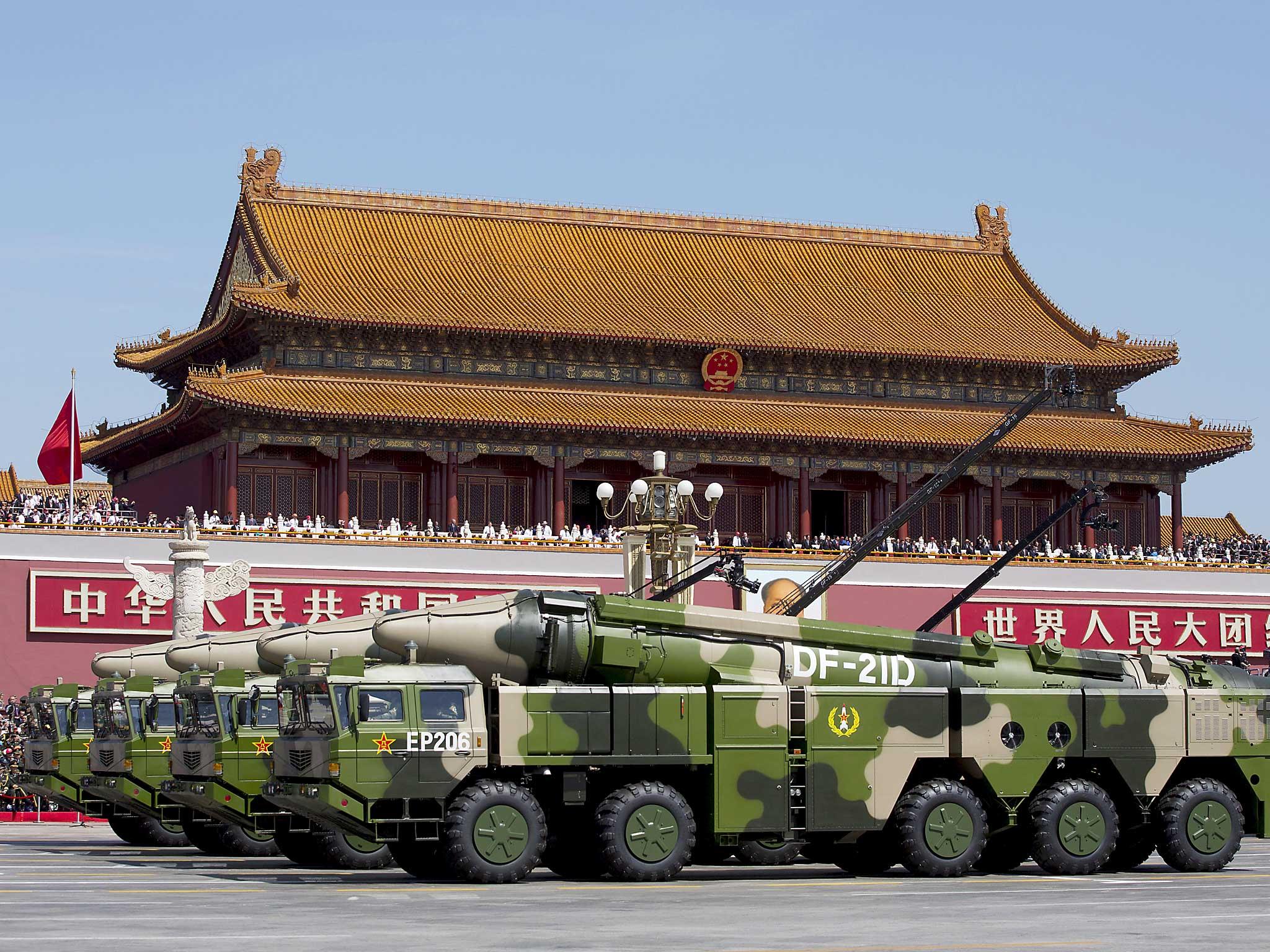Future war with Russia or China would be 'extremely lethal and fast', US generals warn
'The speed at which machines can make decisions in the far future is likely to challenge our ability to cope, demanding a new relationship between man and machine'

Your support helps us to tell the story
From reproductive rights to climate change to Big Tech, The Independent is on the ground when the story is developing. Whether it's investigating the financials of Elon Musk's pro-Trump PAC or producing our latest documentary, 'The A Word', which shines a light on the American women fighting for reproductive rights, we know how important it is to parse out the facts from the messaging.
At such a critical moment in US history, we need reporters on the ground. Your donation allows us to keep sending journalists to speak to both sides of the story.
The Independent is trusted by Americans across the entire political spectrum. And unlike many other quality news outlets, we choose not to lock Americans out of our reporting and analysis with paywalls. We believe quality journalism should be available to everyone, paid for by those who can afford it.
Your support makes all the difference.Any future war with Russia or China would be "extremely lethal and fast" and produce violence on the scale not seen for 60 years, according to US generals.
Artificial intelligence and automated weapons systems will accelerate any future conflict, Major General William Hix has warned.
“A conventional conflict in the near future will be extremely lethal and fast," he told a future-of-the-Army panel on Tuesday, Defense One reports. "And we will not own the stopwatch.”
General Hix described his vision of accelerated future warfare: “The speed of events are likely to strain our human abilities.
“The speed at which machines can make decisions in the far future is likely to challenge our ability to cope, demanding a new relationship between man and machine.”
He warned that technological advancements made by Russia and China in recent years had forced the White House to prepare for "violence on the scale that the US Army has not seen since Korea”.
The US faces existential threats from modern-states "acting aggressively in militarised competition," Lieutenant General Joseph Anderson, Army deputy chief of staff for operations, plans, and training, told the panel.
"Who does that sound like? Russia?" he asked.
Such a war is "almost guaranteed," Army Chief of Staff General Mark A Milley said at the same event.
Future adversaries could end the US's traditional air superiority, and anti-access, area-denial capabilities could prevent the Navy from getting near the battlefield.
So “land forces will have to enable sea forces,” and the Army “is definitely going to have to dominate the air above our battle space,” he added.
The Army will also have to be prepared to engage in cyber warfare, work without space-based communications and precision navigation it has come to take for granted, and fight in a complex urban settings.
On Tuesday, Russia launched a nationwide nuclear war training exercise to ensure the nation is properly prepared in the event of an attack from the West.
Over three days, the Ministry for Civil Defence, Emergencies and Elimination of Consequences of Natural Disasters (EMERCOM) said it would involve 200,000 emergency personnel and co-operate with 40 million civilians to test whether the country is prepared for future nuclear, chemical or biological attacks.
Join our commenting forum
Join thought-provoking conversations, follow other Independent readers and see their replies
Comments